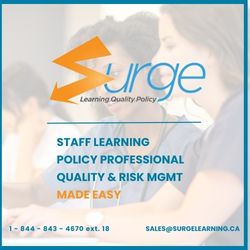
*Last updated 06/28/2024 at 9:17 am.
With wildfire season approaching, it is crucial to be well-prepared to ensure the safety of older adults. This 2024 Wildfire Resource Database is designed to provide essential resources to long-term care and assisted living operators in B.C.
Key Contact Information
Coming soon.
Emergency Preparedness Toolkit for LTC / AL Operators
The LTC/AL Provincial HEM Subcommittee was established to create an emergency preparedness forum that fosters collaboration and continuous improvement among inter-Health Authority and affiliate/private entities.
Its primary goal is to coordinate shared evacuation planning and readiness for Long Term Care and Assisted Living residences across the province.
Here, you can find a comprehensive list of resources developed by HEM-BC and the provincial sub-committee to support these efforts.
The Inter- and Intra- Health Authority Relocation (IIHAR) toolkit provides tools and resources to facilitate patient relocation during emergencies, covering all stages from preparation to repatriation. It takes a patient-centred, culturally safe, and risk-based approach, with special consideration for the most vulnerable.
Find the toolkit on HEM-BC’s website > IIHAR (bottom of the page)
For an overview of how to use the toolkit, watch the instructional webinar or review the presentation slide deck.
To prepare for potential emergencies, care sites are requested to pre-emptively complete the Sending Site List. This list includes all residents/clients who may need to be evacuated, along with their pertinent mobility and clinical information.
For further information and instructions on completing the list, review here.
Coming soon.
Coming soon.
DACS
Deployable Alternate Care Sites (DACS) are portable care units that can be set up on short notice in the event of an emergency. Packaged within a shipping container, DACS contain necessary medical supplies, patient beds and various other logistical and clinical support equipment.
British Columbia has four DACS for the entire province. Long-term care homes and assisted living residences are encouraged to consider alternative options for procuring equipment before requesting DACS support.
Review a full list of supplies included in the DACS, including beds, mattresses, lifts, slings and more, here.
To request the DACS, please complete the Temporary Emergency Asset Request Form.
Questions should be submitted to the HEM-BC Provincial Operations at HEMBCProvincialOperations@phsa.ca
Family Helpline
Coming soon.
Situational Awareness Apps
Consider downloading one or more of these local situational awareness apps to stay informed.
Download the WeatherCan app to receive the latest weather alerts notifications in your area.
Key features:
- Current conditions, hourly and 7 day forecasts for over 10,000 locations in Canada
- Push notifications for all weather alerts issued by Environment and Climate Change Canada for your location and saved locations anywhere in Canada
- Weather information for your location (following you as you travel) as well as for saved locations
- High resolution radar animation on a zoomable map background
- A message centre providing weather facts and climate information relevant to the current weather
- Today and short-range forecast widget for quick, at-a-glance weather information
The official BC Wildfire Service mobile app is available for free download in the App Store and on Google Play.
The BC Wildfire Service App provides up-to-date wildfire information on your mobile phone, helping you stay informed about wildfires and wildfire-related events and conditions across B.C.
Evacuation Notification System by District
Temporary Emergency Registration Process
BCCNM is accepting applications for temporary emergency registration to support emergency health-care response related to environmental emergencies – such as wildfires or flooding – this summer.
Temporary emergency registrants can practice nursing in British Columbia for up to 180 days, with possibility of extension if required.
Eligibility
- Eligible nursing professionals include:
- Practising licensed practical nurses (LPNs), nurse practitioners (NPs), registered nurses (RNs), and registered psychiatric nurses (RPNs) in another Canadian jurisdiction.
- Non-practising registrants with BCCNM.
- Former registrants with BCCNM.
- LPNs, NPs, RNs, and RPNs in the Canadian or United States Armed Forces.
To apply, visit the application page for your profession:
Further information coming soon.
Worker Health and Safety Resources
Extreme weather can arise quickly and pose several significant and sometimes overlapping health and safety issues. These resources from our partners at SafeCare BC can help care providers keep their staff safer in extreme weather conditions.






